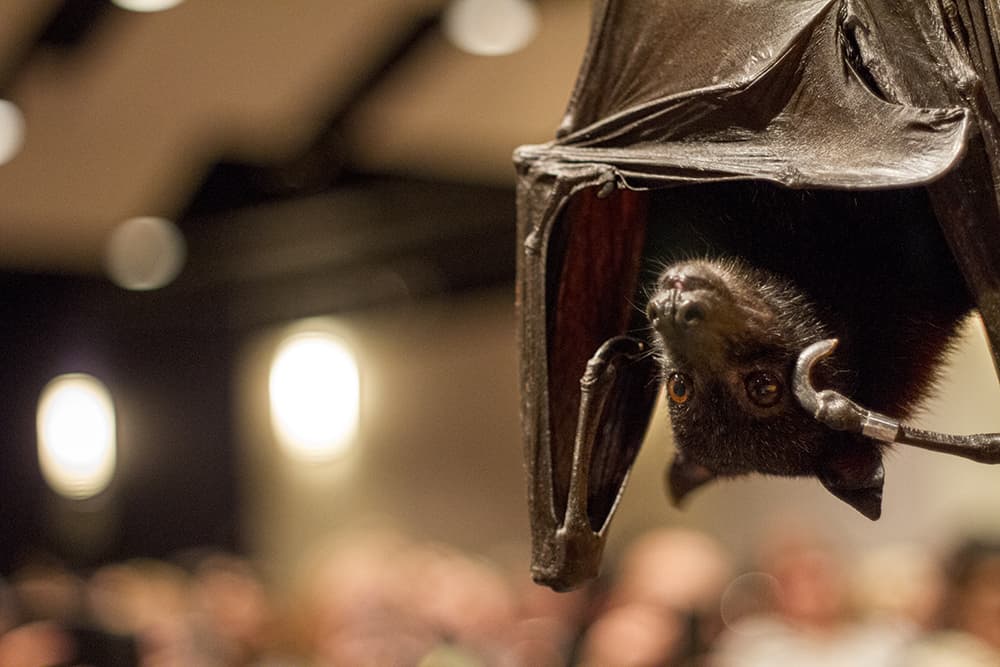
Yes, that is an enormous bat. But don't be afraid, she's a sweetie.
Camilla is a giant Malayan flying fox, and though she's never flown in her 22 years on earth, she's made her way into the company of Ellen DeGeneres, Conan O'Brien and, last night, an adults-only crowd of Denverites at the Museum of Nature and Science.
Friday was field ecologist Rob Mies' eighth time visiting DMNS. He's the Bat Zone Director at Michigan's Cranbrook Educational Community and the executive director of the Organization for Bat Conservation.
The bat expert's visits always draw huge crowds, but the special audience last night meant he was able to talk a little more frankly about his work.
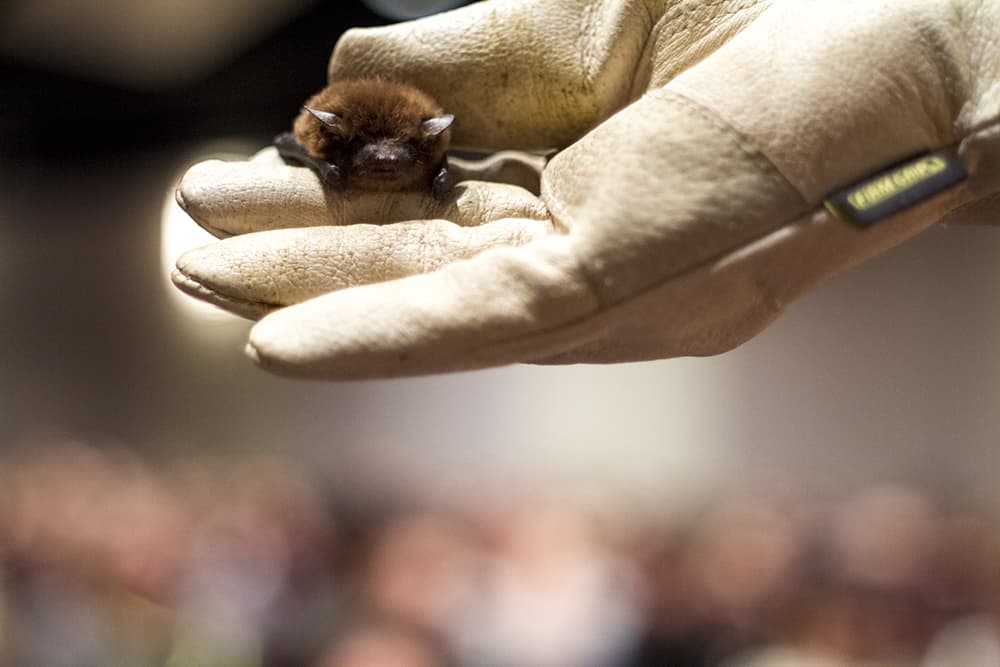
For instance, most bats only have one baby at a time, but not the red bat (which, by the way, is found in Colorado). They can have "three, four or five at a time," Mies told the audience.
"With kids, I call them 'feeding stations' but here we can call them nipples. They have four 'feeding stations' -- that's weird. You know, it's kids all the time and families."
The crowd erupted in laughter.
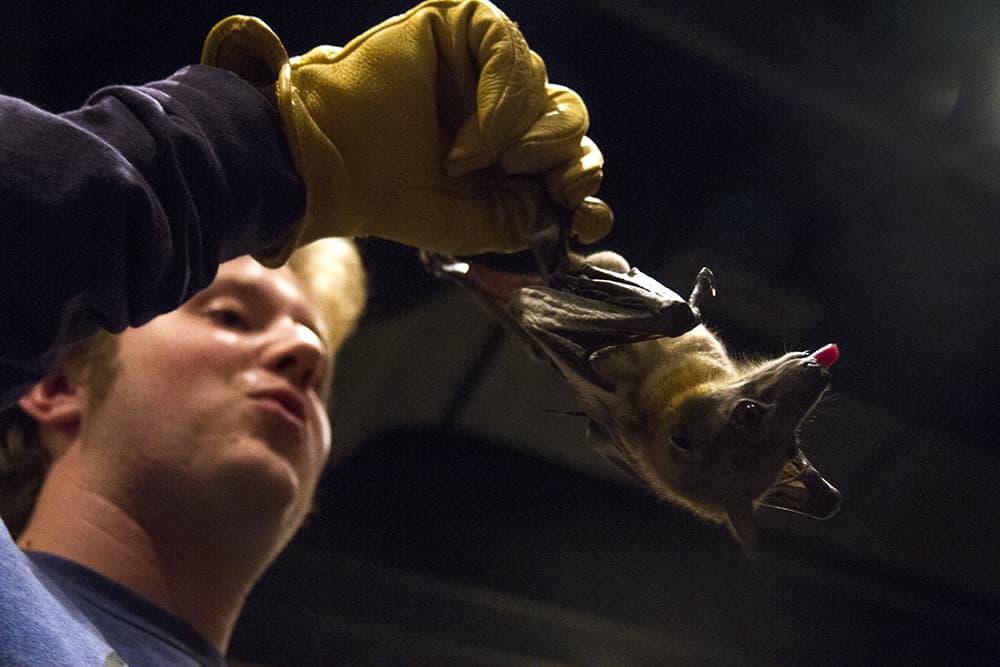
Another adults-only tidbit: Do you know who is the largest consumer of guano, or bat poop, in the world?
"This is interesting. I can't tell kids this, uh, ever," Mies said. "Guano harvesting around the world is a big multimillion dollar operation. There's one place in the world that buys the most guano. It is Colorado."
That's right. The bat byproduct is some of the most nitrogen-dense stuff in the world, and we have a lot of cultivation that needs fertilizing.
"It's legal here so I can say it," he told the audience. "You're growing your weed!"
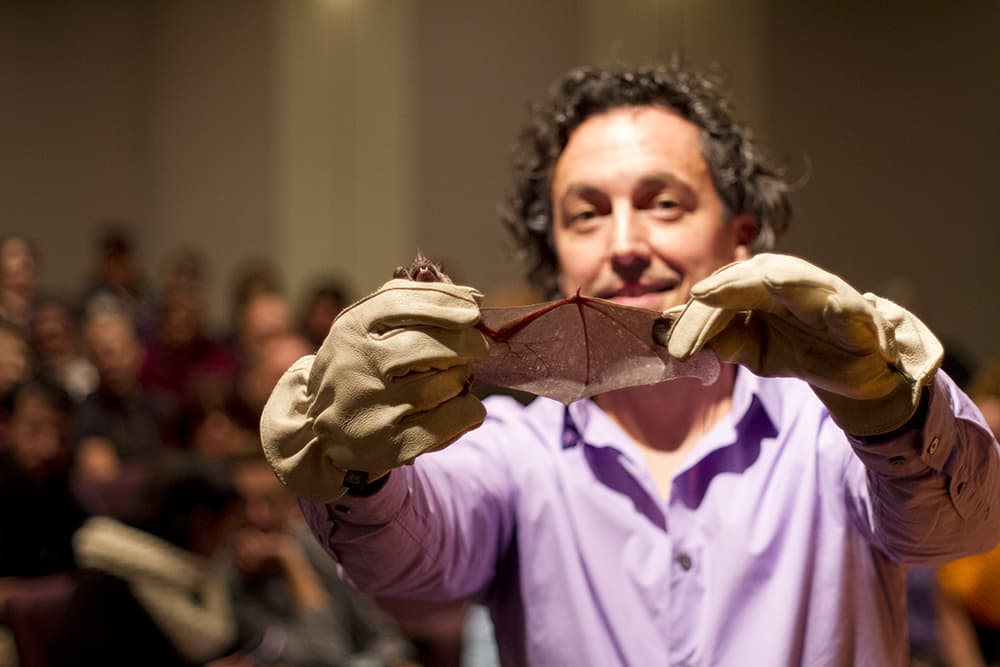
The adult-only programming is one way that the museum is filling a need for knowledge-hungry Denverites who might be looking for an alternative to normal nightlife.
Jessa Phillips, an adult programming coordinator for DMNS, says adult audiences really want content. While she helps put on the "science lounge," which is essentially just drinking at the museum, Phillips said the sold-out crowd for Mies' presentation is proof that people want more than a reason to party.
And it shows.
The audience was keen to ask all sorts of questions ranging from bats' birthing cycles to ecosystem health.
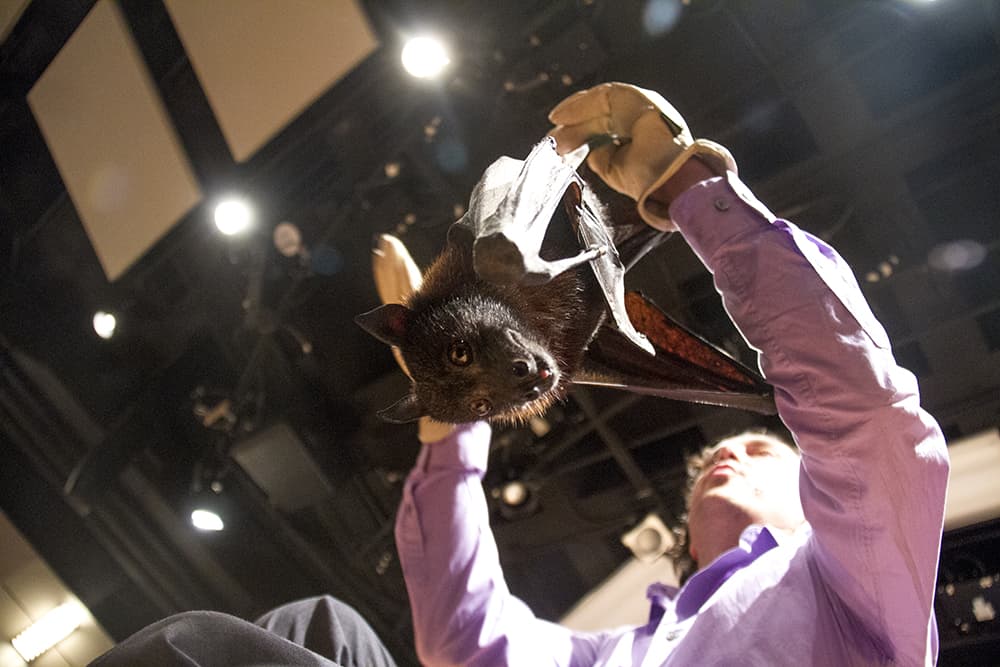
For Mies, this is a very good thing. He's not just taking his winged friends on a tour for fun.
Mies and his colleagues are on a mission to win people's hearts for bats because he sees some disturbing trends that could be overlooked if people are afraid of the creatures.
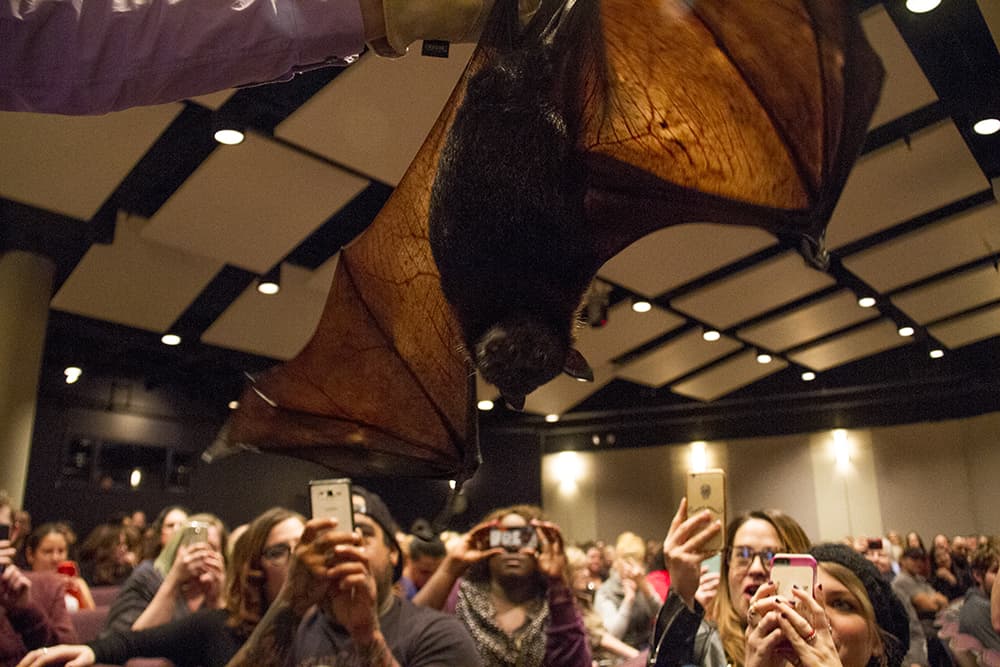
Urbanization has limited bat habitats over the last century, making it difficult for species to find safe havens. Researchers at the University of Northern Colorado have also been studying the effects of climate change on species, Mies said, observing how disappearing mineral water sources have caused bats to stop reproducing.
There's also a spreading fungal problem called "white nose syndrome" that has stretched from a single county in New York to 36 states. Fungus grows on bats' faces while they hibernate, waking them up and disturbing their metabolic cycles. Mies says about one million bats a year are dying because of this fungus.
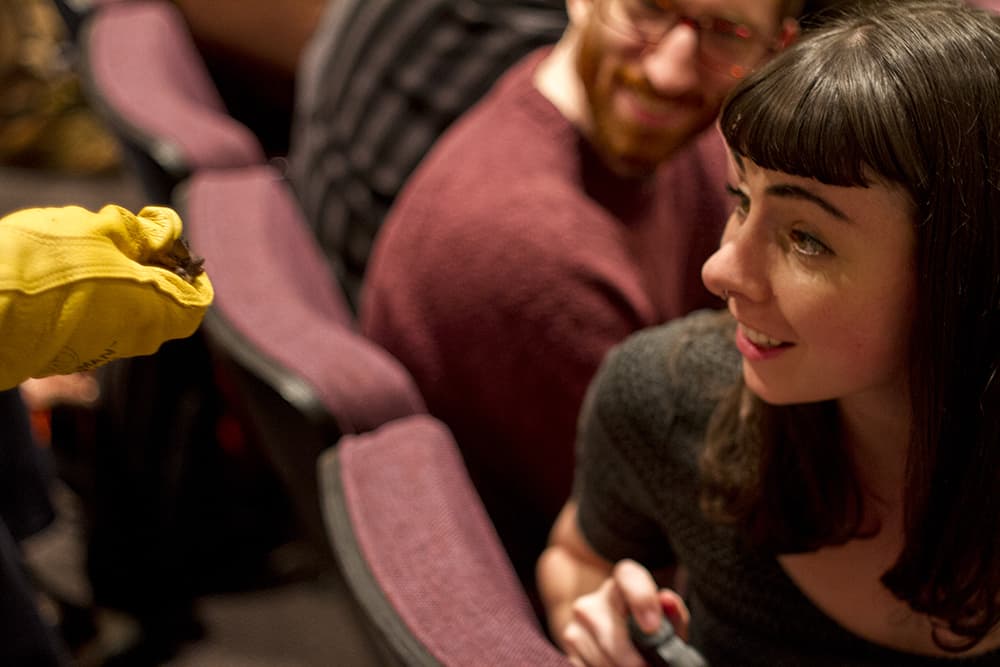
Avocados, agave and bananas are all pollinated by bats. If you care about guacamole or tequila (or apparently, weed), you should care about bats, Mies said.
The flying critters also are the largest consumer of insects in the world. As they die, Mies said we probably won't see an increase in bugs but instead increased use of pesticides. As a field ecologist, Mies looks at ecosystem-wide issues. More chemicals means not only fewer bats but also fewer bees and more health issues for humans.
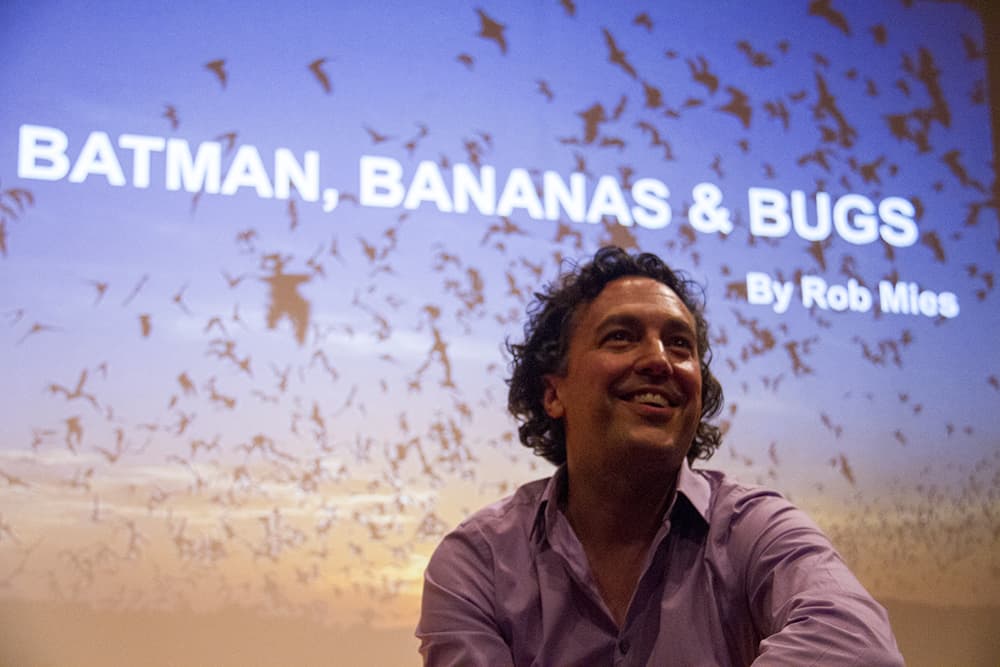
While Mies usually works to educate kids who might one day work to help save bat species, Friday he struck a chord with people who can act much sooner.
And it worked. As the audience left, new bat lovers walked away with just-purchased bat houses and a little more knowledge than before. Not bad for a Friday night out.











